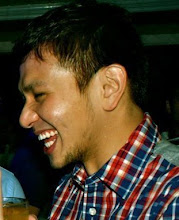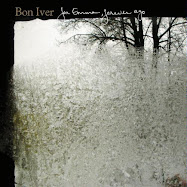---Oscar Wilde
People are strange creatures, I've learned. Most of our existence is characterized by routine but still, we persist in measuring our lives by "significant" events; those huge, dramatic, episodes where people demonstrate their ability to navigate through pain and suffering.
But some would argue that it is the ordinary day-to-day living that actually defines who we are, all that makes a life feel meaningful or feel meaningless.
What defines a marriage, for example? Is it the anniversaries and the Christmases or is it about the affection, care, and love we give our partners everyday?
I read an article written by Joseph Epstein, formerly the editor of The American Scholar titled "The Symphony of a Lifetime". He cited Gary Saul Morson, a teacher of Russian literature at Northwestern University, who showed how Tolstoy believed in the prosaic life and Dostoyevsky in the dramatic.
In his article he said:
Things happen to Tolstoy’s characters — they go to war, have vastly disruptive love affairs, suffer unexpected deaths — but they are most interesting in their ordinariness: a strong case in point is Natasha’s family, the Rostovs, in War and Peace. Her brother and father and mother, with their rich but normal passions, appetites and family loves, are people who gain moral stature through an endless series of small acts.So what then constitutes a happy life? Tolstoy would say what makes a life good or bad is how the ordinary moments are lived.
In Dostoyevsky, on the other hand, nothing is ordinary: passions turn into obsessions; gambling addicts and epileptics are at the center of things; men are beating horses to death on the Nevsky Prospect; poverty has wrenched people’s lives into little hells on earth. The question isn’t really who — Tolstoy or Dostoyevsky — is the greater novelist, for both are great, but which shows life as it is more truly is.
As Professor Morson puts it: “Dostoyevsky believed that lives are decided at critical moments, and he therefore described the world as driven by sudden eruptions from the unconscious. By contrast, Tolstoy insisted that although we may imagine our lives are decided at important and intense moments of choice, in fact our choices are shaped by the whole climate of our minds, which themselves result from countless small decisions at ordinary moments.” At some point in life, I think, one has to decide if one is, in one’s belief in the shape of his or her life, a Dostoyevskian or a Tolstoyian.
In my university, we were taught the concept of the fundamental option in theology; the idea that people do not become good or evil overnight. Fundamental option refers to the basic human choice we make as to how to live our life. It is not the freedom of choice to do a particular thing or not. Rather, it is the freedom to create oneself with regard to the totality of existence and its direction.
Let's say I lied today. That doesn't make me a liar. But if I lie every day, at some point in the future, I not only lied, but I have become a liar. We become what we do.
And in the end, all those little choices we make; to wake up early for work no matter tired and sleepy we are, to be kind to those who may not deserve it, they may be the ones that matter, after all.




7 comments:
this reminds me of judith butler and her performative theory. how we become what we do repeteadly. of course she applies her theory to gender and sexuality. but same difference.
But what if the person lied once but the magnitude of such lie could destroy lives? How do we perceive the person then?
I know its beside the point, but I'm just curious. Hehehe.
To be kind to those who doesn't deserve it.
Martyrdom perhaps?
Marianas Trench post! So deep!
Brain-melting. :)
i think i need a hanky, my nose just bled a little.
did you just have a defining moment, kane?
=)
I used to define everything and everyone by the "big" and "signicant" events and episodes, until I let go of someone who never performed a "big" enough act for me, and I realized one day, that I had let go of someone who constantly and consistently loved me every day, but did so in such a quiet, banal way that I never noticed or appreciated. It was a huge wake up call for me. It's in the way that someone treats you on an everyday basis that really matters, and not the once a year red carpet treatment. It seems that we humans are always looking for the "bigger" and "better" when in reality, the one that is already there, the one that is always there, is the one that we should always appreciate.
meh hearing dumbledore talking to harry: 'It is our choices that show what we truly are, far more than our abilities.'
:) i do not want to argue. de vita beata.
Let's work on this assumption: "in the depths of [man's] heart there always remains a yearning for absolute truth and a thirst to attain full knowledge of it."
Now to seek for that truth and to thirst for that goodness is essentially to turn towards God who is "the fullness of goodness."
From that point of departure this fundamental option then is contrary to that very idea. For to separate the fundamental option from concrete kinds of behavior means to contradict the substantial integrity or personal unity of the moral agent [man]."
@Galen brought it up too nicely. What if there is that one lie that destroys a life or several lives?
A person who knowingly, and with full volition, chooses to lie, cheat etc., i.e., to sin, turns away therefore from that "fullness of goodness" [God].
The beauty of all of this is that even if we turn away from that goodness there is no need for condemnation for even if our own hearts condemn us, God is greater than our hearts.
Ok. 'nuff said. Not arguing here, ha? Nice post. Made me think. :-)
You sparked a fire in my mind. Thank you.
Post a Comment